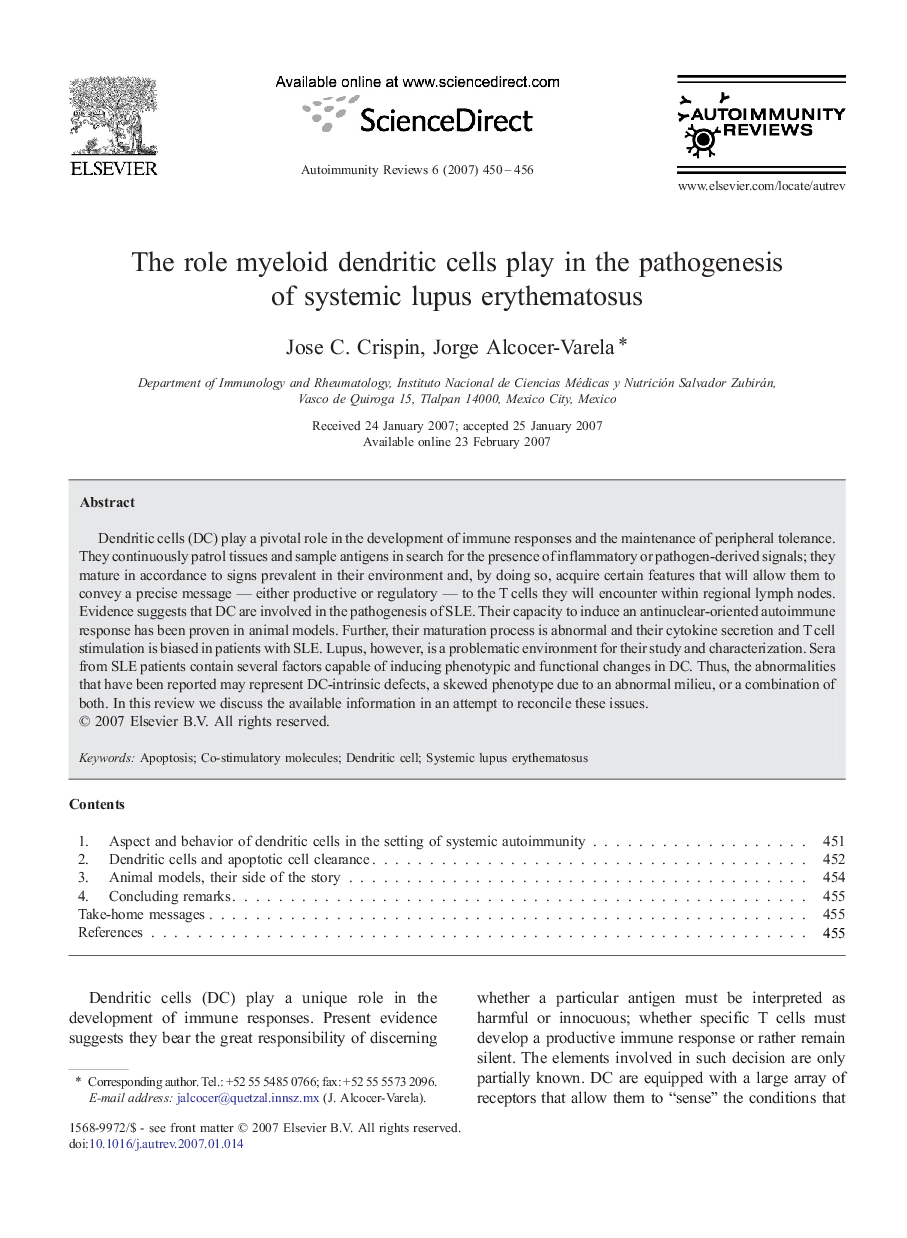| Article ID | Journal | Published Year | Pages | File Type |
|---|---|---|---|---|
| 3342417 | Autoimmunity Reviews | 2007 | 7 Pages |
Dendritic cells (DC) play a pivotal role in the development of immune responses and the maintenance of peripheral tolerance. They continuously patrol tissues and sample antigens in search for the presence of inflammatory or pathogen-derived signals; they mature in accordance to signs prevalent in their environment and, by doing so, acquire certain features that will allow them to convey a precise message — either productive or regulatory — to the T cells they will encounter within regional lymph nodes. Evidence suggests that DC are involved in the pathogenesis of SLE. Their capacity to induce an antinuclear-oriented autoimmune response has been proven in animal models. Further, their maturation process is abnormal and their cytokine secretion and T cell stimulation is biased in patients with SLE. Lupus, however, is a problematic environment for their study and characterization. Sera from SLE patients contain several factors capable of inducing phenotypic and functional changes in DC. Thus, the abnormalities that have been reported may represent DC-intrinsic defects, a skewed phenotype due to an abnormal milieu, or a combination of both. In this review we discuss the available information in an attempt to reconcile these issues.
